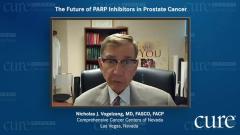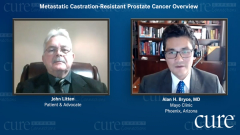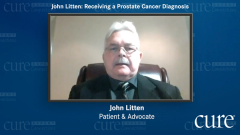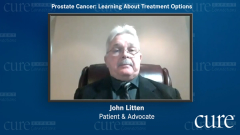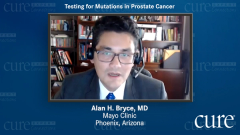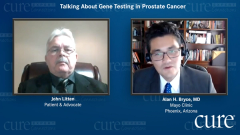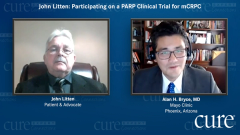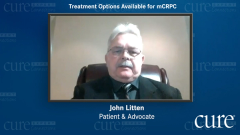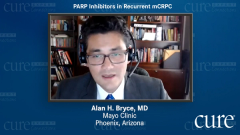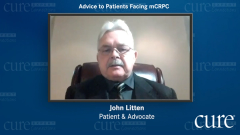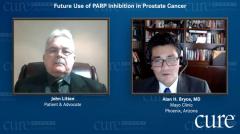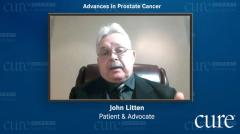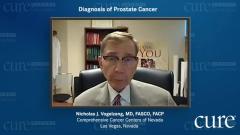
Receiving a Prostate Cancer Diagnosis
Episodes in this series

Alan H. Bryce, M.D.: John, can you talk about your prostate cancer journey, how it was initially diagnosed by your primary care physician, and what were you thinking as you went through this process?
John Litten: I had a very fortunate thing right out of college to move to a really beautiful small island in Sitka, Alaska. I lived there for close to 50 years. We didn’t have what I would consider to be the best medical teams available. Annually, I would get a physical, but my doctor didn’t check for the condition of my prostate. It wasn’t until one winter when I was south and I needed to get a prescription refilled and couldn’t do it because I wasn’t home, that I went to a new doctor and said, “I need to get this prescription filled.” He said, “I will, but not until I do a physical.” Well, he checked my prostate and immediately said, “Mr. Litten, you have prostate cancer, and you need to see an oncologist immediately. I’m going to schedule that for you.”
I had no symptoms you could have prior to that point, no urinary problems or any blockages or anything. My emotions ran the gamut from when you’re told you have cancer to be a bit shocked, and even greater was not knowing what to do. I immediately read through a couple of books because there are seven, eight, nine different approaches to how you might treat prostate cancer. I was trying to figure out what the best thing is, what I should do. On advice of a couple of medical surgeons I knew who both had had prostate cancer and had their prostates removed, they talked me into going in that direction.
I flew back to Northwestern University [in Chicago], and I had my prostate removed. That was four to five months after I was initially diagnosed with cancer. At the time of my surgery, the doctor was fairly convinced that the margins were clear, that the prostate was removed. He didn’t recommend radiation or any other treatments at the time. He thought that I would probably be OK after that. Actually, I was OK for about a year and a half. Then all of a sudden, as I had a blood test, my PSA [prostate-specific antigen] level began to climb.
That’s when I came to you to help take care of my medical journey with this cancer. As you initially described all the potential types of prostate cancer you can have, I align with everything you say. I’m at the castrate-resistant, metastatic prostate cancer. Fortunately, because I have been under your direction, I’ve had the opportunity to go through three different human trials.
Most patients start with Xtandi [enzalutamide] and Zytiga [abiraterone acetate]. Those are the initial processes that I got involved with in trying to slow my cancer down. Then it was under your recommendation that I go forward with the Lupron [leuprolide] injection. That is a female hormone injection. They said the side effects that I want to be watching out for were hot flashes, but I don’t know that I ever really experienced that. It was imperative at that point to do exactly as you said, to reduce my testosterone production down to as little as you can.
As you’ve explained to me in other discussions, it’s impossible to completely eliminate your prostate production because it can come out of other organs. But you have to stop feeding the cancer somehow. That was my initial journey in getting to your office. Then at that point, I have followed all your recommendations.
I can remember our first conference. At that point, people that were in my condition said that you probably have a fairly secure three to five years to live without it taking your life. That was eight years ago. I feel blessed in the treatments I’ve received to date.
Alan H. Bryce, M.D.: The journey is difficult. Everything you’ve gone through in terms of the education and the emotional evolution, you really took the bull by the horns to say I need to take care of my health. Right? You did a lot of research. You sought out different doctors. Also, credit that to the primary care physician who did the physical exam and found the cancer when it was still relatively early at least and before you were in trouble with it at the time. It clearly emphasizes how important it is to do that kind of screening.
John Litten: Absolutely. You should be screened annually. Every physical that you have, your prostate should be checked because it can change quickly in a year, from normal feeling of no cancer to finding a lump. That typically is your first indication to a doctor that it’s time to do something, that and potentially your PSA score.
Transcript Edited for Clarity






